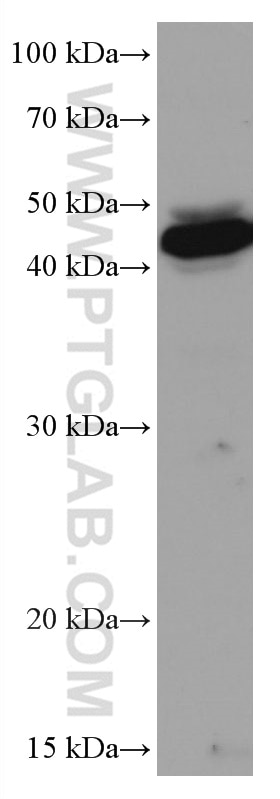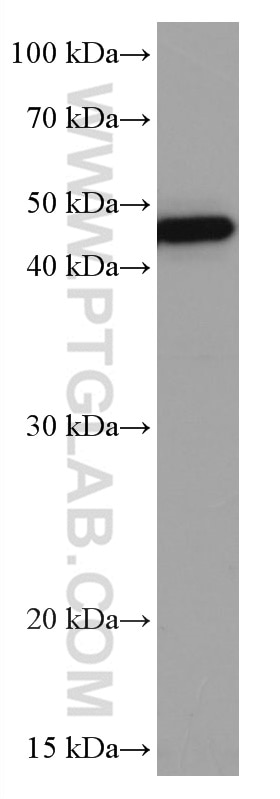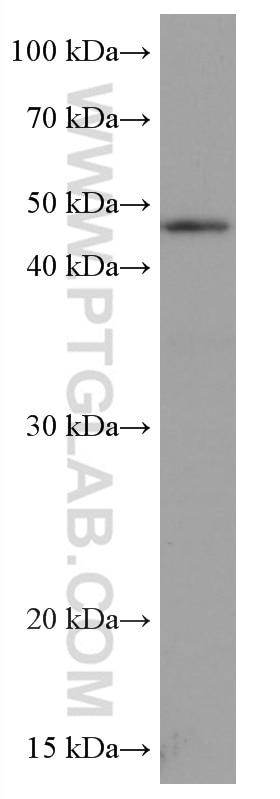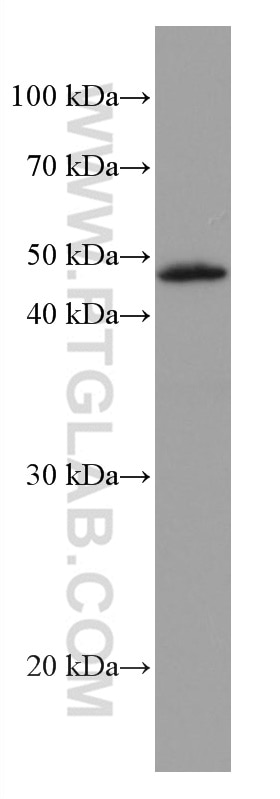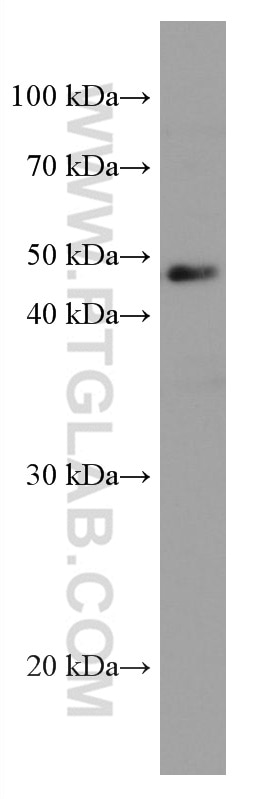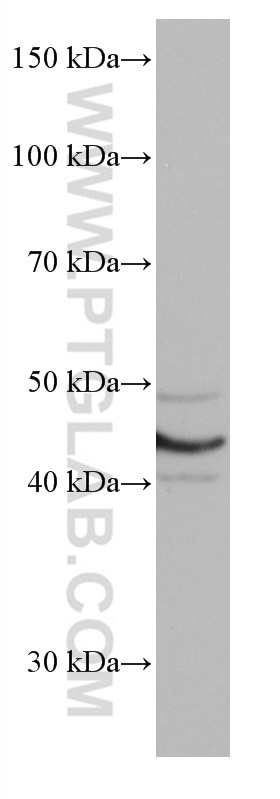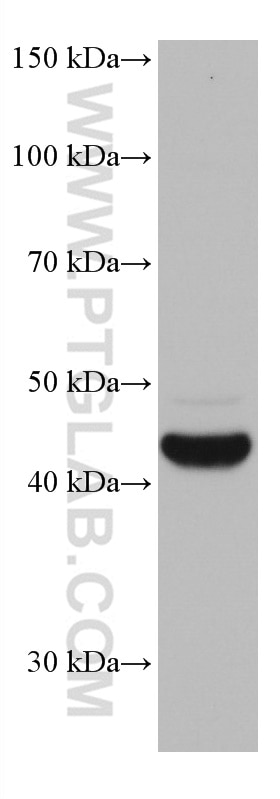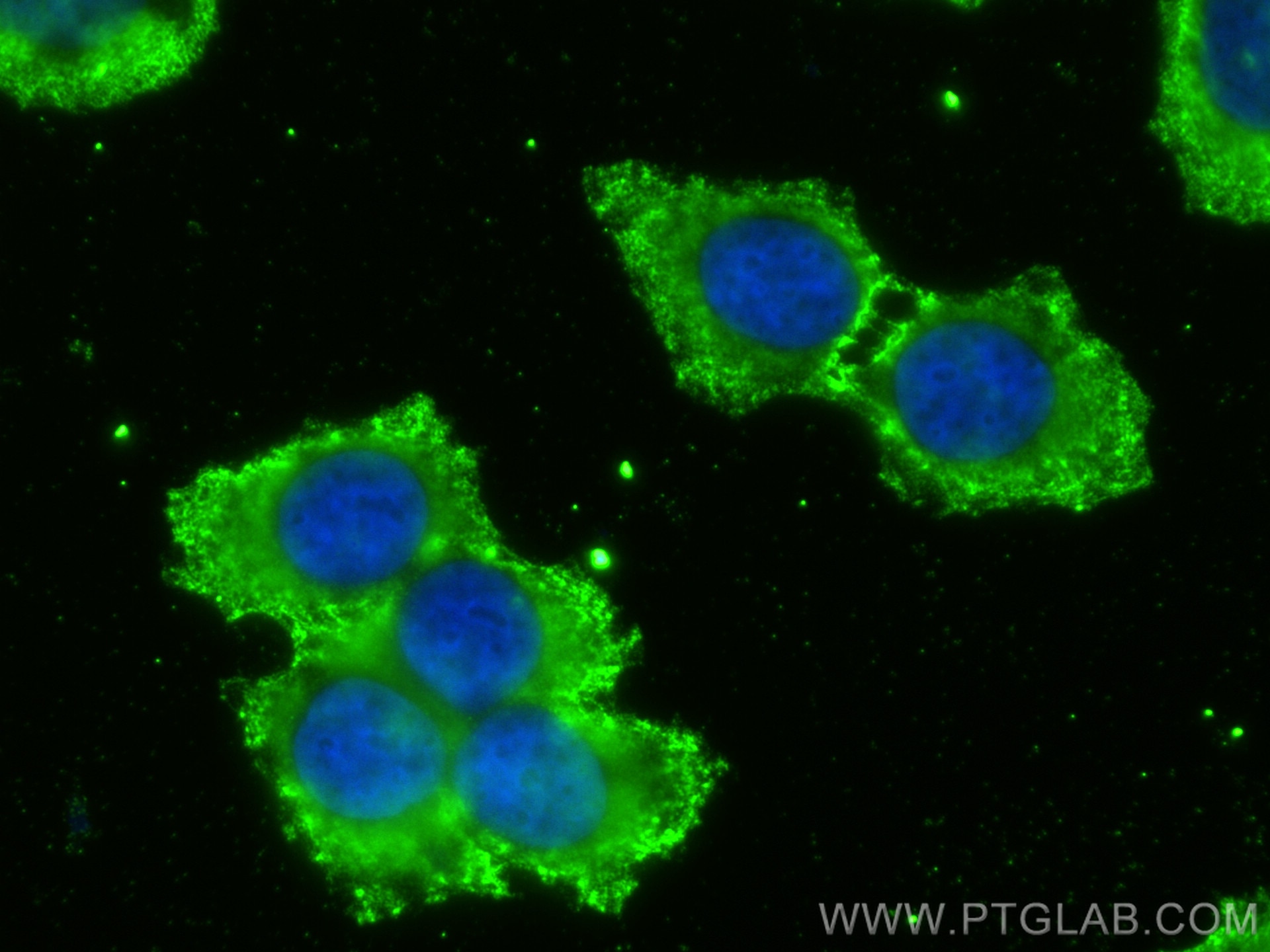Validation Data Gallery
Tested Applications
| Positive WB detected in | MCF-7 cells, T-47D cells, NCI-H1299 cells, A549 cells, LNCaP cells, HT-1080 cells |
| Positive IF/ICC detected in | MCF-7 cells |
Recommended dilution
| Application | Dilution |
|---|---|
| Western Blot (WB) | WB : 1:1000-1:5000 |
| Immunofluorescence (IF)/ICC | IF/ICC : 1:400-1:1600 |
| It is recommended that this reagent should be titrated in each testing system to obtain optimal results. | |
| Sample-dependent, Check data in validation data gallery. | |
Published Applications
| WB | See 1 publications below |
Product Information
67116-1-Ig targets VEGF-C in WB, IF/ICC, ELISA applications and shows reactivity with human samples.
| Tested Reactivity | human |
| Cited Reactivity | human |
| Host / Isotype | Mouse / IgG1 |
| Class | Monoclonal |
| Type | Antibody |
| Immunogen | VEGF-C fusion protein Ag18182 相同性解析による交差性が予測される生物種 |
| Full Name | vascular endothelial growth factor C |
| Calculated molecular weight | 419 aa, 47 kDa |
| Observed molecular weight | 47 kDa |
| GenBank accession number | BC035212 |
| Gene Symbol | VEGFC |
| Gene ID (NCBI) | 7424 |
| RRID | AB_2882420 |
| Conjugate | Unconjugated |
| Form | Liquid |
| Purification Method | Protein G purification |
| UNIPROT ID | P49767 |
| Storage Buffer | PBS with 0.02% sodium azide and 50% glycerol pH 7.3. |
| Storage Conditions | Store at -20°C. Stable for one year after shipment. Aliquoting is unnecessary for -20oC storage. |
Protocols
| Product Specific Protocols | |
|---|---|
| WB protocol for VEGF-C antibody 67116-1-Ig | Download protocol |
| IF protocol for VEGF-C antibody 67116-1-Ig | Download protocol |
| Standard Protocols | |
|---|---|
| Click here to view our Standard Protocols |
Publications
| Species | Application | Title |
|---|---|---|
Cell Cycle CircHGS enhances the progression of bladder cancer by regulating the miR-513a-5p/VEGFC axis and activating the AKT/mTOR signaling pathway |
